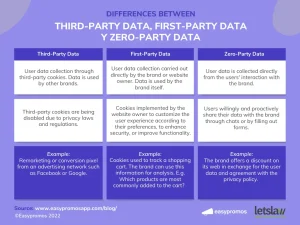Negotiation Techniques for Sales Professionals

Sales professionals should view negotiations as a partnership rather than an adversarial process, so as to maximize the outcome of the negotiation. This entails understanding what the buyer wants and giving it to them in exchange for what they want.
Before bargaining starts, know your numbers and company policies well enough to determine any allowable concessions and discover buyers’ hidden problems which can also enable effective communication.
Active listening
One of the most important skills that sales professionals must have during negotiations is active listening. This method involves completely hearing and understanding what another person says before responding – a valuable tool for establishing trust with clients and building rapport.
To listen actively, one should give undivided attention and not look at their watches or phone while talking; sit still without fidgeting on chairs or doodling. In addition, note taking during conversations may be helpful in ensuring that all key points are captured in this kind of talk.
Being objective requires recognizing biases or preconceptions that might affect how we perceive others and their arguments especially when under pressure situations. Open-ended questions which encourage speakers to provide more details can also help – this way you can validate their feelings while showing that you care about their concerns.
Identifying objections
Often times buyers will raise objections during negotiations but instead of being defensive when your client voices out his/her concerns see it as an indication that someone is interested in what you are offering hence open mindedness towards accepting it.
The success of sales negotiations lies behind finding out what matters most for each party involved in making decision about purchasing products or services. Restating the objection, asking clarifying questions and acknowledging it gives room for both sides to explore alternative solutions which can work best for each other.
One way of identifying customer underlying concerns is reviewing past deals gone bad through analyzing previous talks held between different individuals within organizations so sellers may respond appropriately such issues commonly revolve around cost; personal relationships; time among others. Common objections include price, personal relationship and postponement which can be overcome by showing value or creating primary negotiables alternatives (for instance if buyers fear high costs then consider offering after sales service at reduced rate).
Creating value
Sales negotiation plays a critical role in the overall process of making sales as it helps to generate agreements that benefit both parties involved in the transaction at every stage. However, many salespeople find themselves torn between self-serving competitive bargaining styles and those centered on building relationships.
Empathic listening coupled with framing questions aimed at understanding a prospect’s point of view are essential skills for successful negotiations. Failure to fully appreciate all their concerns before rushing into price talks may deny you significant bargaining power.
Problems can also be solved creatively so that everybody wins more than they expected initially. When a potential client objects about the cost of something, suggesting other things within your control which could make it cheaper or more attractive might help address any objections not easily resolved through giving concessions; this demonstrates partnership working closely together towards finding individualized answers based on what works best for them.
Building rapport
Reaching authentic relations is important in successful negotiations. This means showing understanding and using the same language, trying to understand what clients want and need through their representatives and getting further than merely selling things.
An effective negotiator can establish this kind of a relationship by responding empathetically to objections or offering extra resources before they are requested. By doing these things, you will be able to create a name for yourself as someone who is real and dependable which will help in forming partnerships that last long in business.
Never try to be something you’re not because people can always tell when others aren’t being genuine; moreover, they tend not deal with such individuals. Rather than that, let Oscar Wilde out within yourself during negotiations – it’ll pay off!


